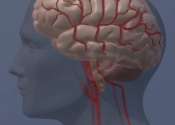Biological age, not birthdate may reveal healthy longevity
A first-of-its-kind study of 1,813 older women suggests that the accelerated biological aging of the body—epigenetic age acceleration specifically—is associated with lower odds of living to be 90 years old and also being ...
Jul 27, 2022
0
516









